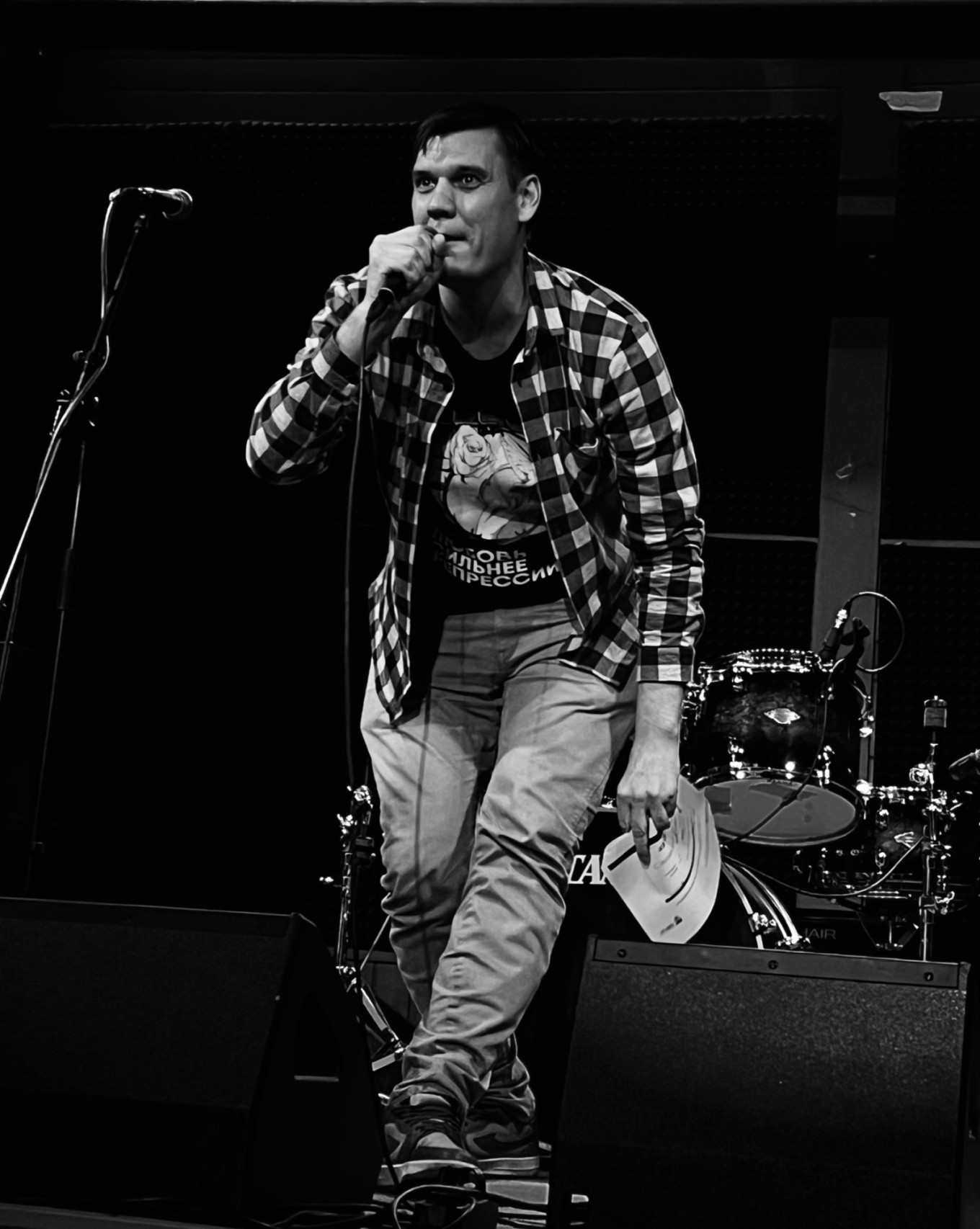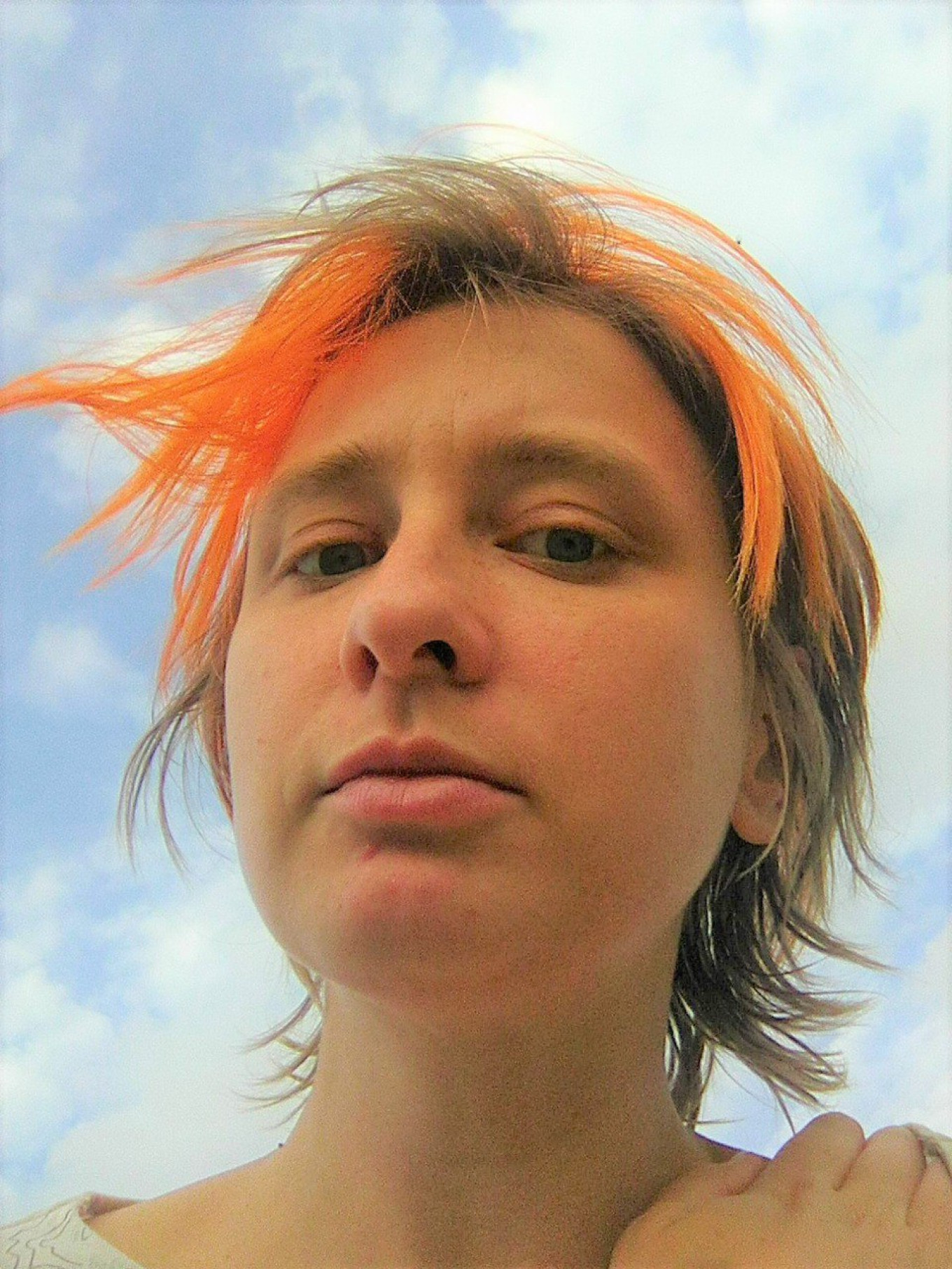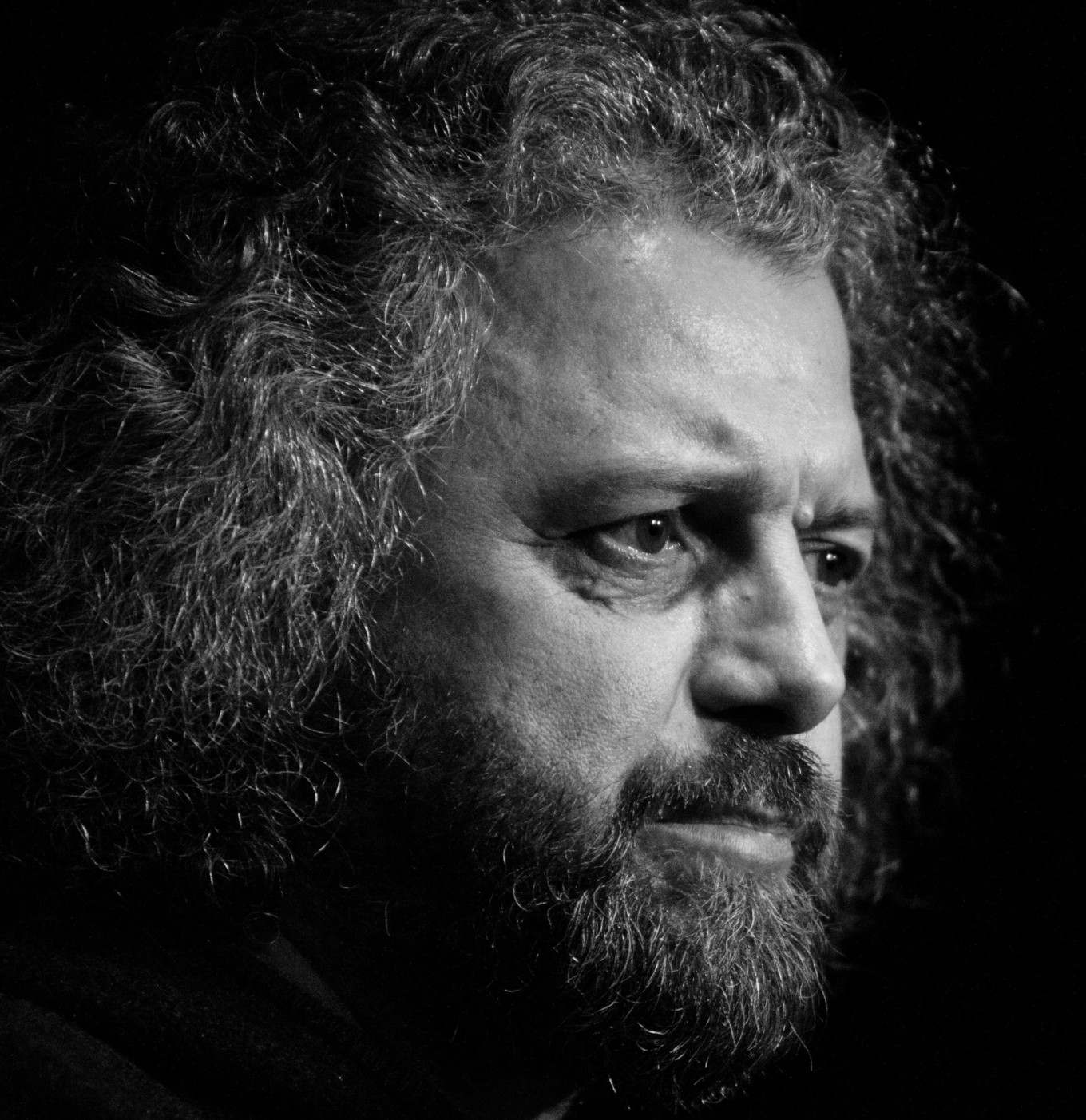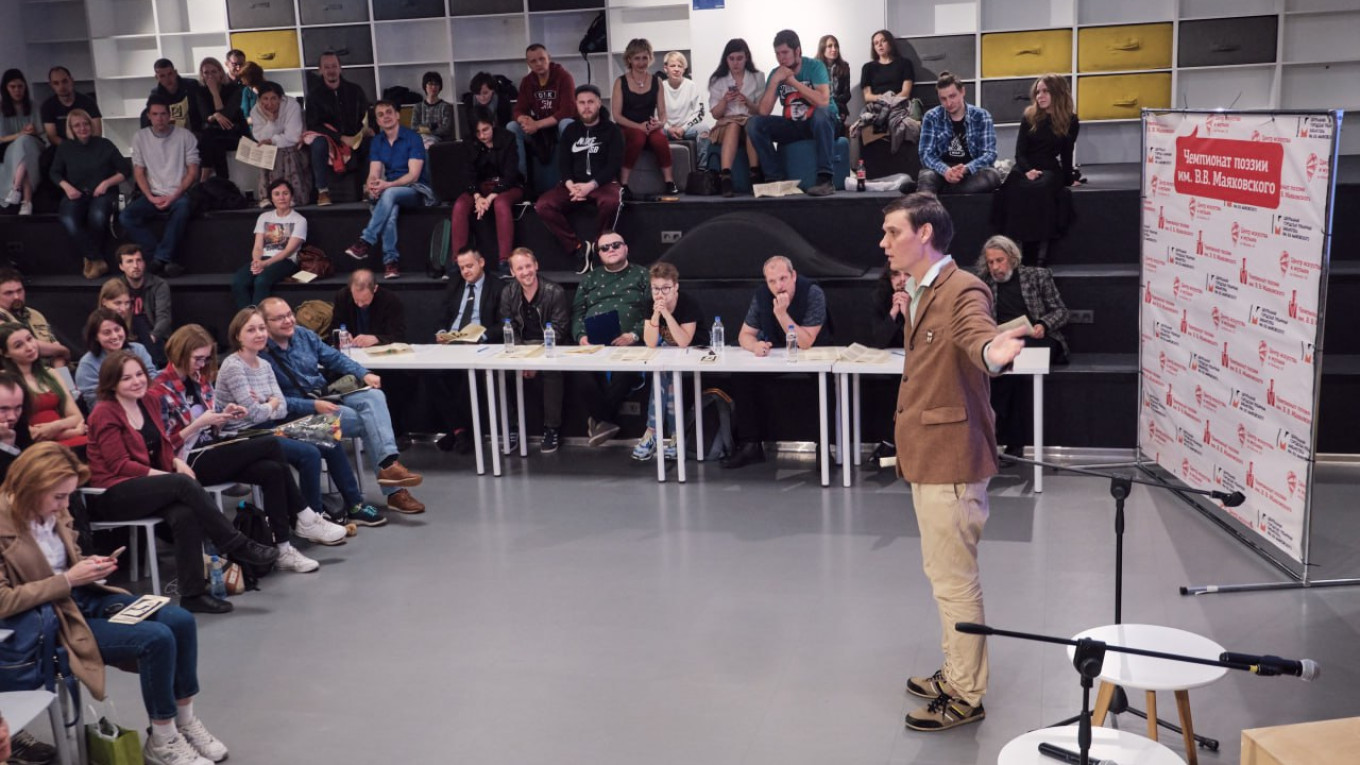The three poetry texts below explore the behavior of ordinary Russians in the context of war. All of them are based on real events. But the authors look at the situation in Russia from very different geographical locations and through different metaphysical lenses.
Jamil Nilov is right in the thick of things: He lives in Moscow, takes part in poetry readings and political events and interacts with a variety of people. Ksenia Buksha emigrated to Montenegro in 2022 and observes what is happening in her native country from the outside. Dmitri Strotsev is from Belarus (currently living in Lithuania), which gives him a very special perspective.
All three texts speak in very different ways about the same thing: the tragic impossibility of dialog between people with opposing political views. Nilov's hero is watching a colleague for whom the war has turned into a show; feeling helpless, he doesn’t even try to explain anything. Buksha reproduces the chat between a brother and sister — an attempt at a discussion that gets bogged down when they can’t find a common language and eventually ends with nothing. Strotsev takes the total misunderstanding of two people to the absolute extreme, when people move from verbal arguments to physical violence.

Jamil Nilov
Jamil Nilov is a poet who likes dramatic performances and poetry competitions. Since the 2010s, he has participated in many different festivals and organized his own: The Vladimir Mayakovsky Poetry Championship. He continues to perform in contemporary Russia, unafraid to read lines like "If they picture victims of smoking on cigarette packs, why don't they picture victims of war at enlistment offices?"
Мой коллега, тучный мужчина лет пятидесяти, каждый день на обеде включает футбол на планшете.
Он не использует гарнитуру и в один голос кричит с комментатором:
Гол!
Го-о-ол!
Го-о-о-о-ол!
Так, что выплёвывает кусочки котлеты на стол.
Стол за собой он, кстати, не протирает.
Его не смущает, что в одной команде только защитники, в другой — нападающие.
Его не смущает, что у вратаря соперника связаны руки за спиной.
Его не смущает, что вратарь мёртв, как и все игроки.
Каждый день он кричит: 5:0
Каждый день он кричит: 10:0
Каждый день он кричит: 410:0
Котлетных плевков всё больше, ими усеян весь стол.
Он давится и громко кашляет.
Но не в силах нажать на паузу и увидеть, что вместо мяча — голова его сына.
***
My coworker, fat and maybe fifty, watches football on his tablet every day at lunch.
He doesn’t wear headphones. He shouts along with the commentator:
Goal!
Go-o-al!
Go-o-o-o-al!
He shouts with all his might, spraying the table with bits of meat.
He doesn’t, of course, clean the table after himself.
He isn't bothered that one team has just defense while the other team has all offense.
He isn't bothered that the opponent's goalkeeper has his hands tied behind his back.
He isn't bothered that the goalkeeper is dead, like all the players on that team.
Every day he yells: 5-Nil!
Every day he yells: 10-Nil!
Every day he yells: 410-Nil!
He sprays more and more bits of meat. The table is strewn with meat.
He chokes and coughs.
But he doesn’t have the strength to hit pause and see that instead of a ball, they are kicking the head of his son.
Translated by Michele A. Berdy for The Moscow Times.
From Jamil Nilov:
The war is the biggest tragedy in my life. I realized that it is more terrible for me than the death of my mother. Last summer I fell asleep and woke up with the question — why can't I do anything?
In the fall when the mobilization was announced, I went to a rally at the Gostiny Dvor in St. Petersburg. I didn't even get a chance to shout any slogans before they arrested everyone. The charges were delusional. They alleged that I went out on the roadway and was warned for 10 minutes. Actually the riot police just surrounded us and arrested us all. They even grabbed a war supporter — a funny situation: he started bickering with the policeman, then with the judge. It was like he was quoting people arrested during the repressions of the 1930s: “Tell Comrade Stalin, it's a terrible mistake." He didn't realize that cannibals don't care what the meat is thinking. For making their job harder, he was given 15 days, while most of us, including me, got 10.
Just today a girl wrote to me that she remembered my poetry performance in the paddy wagon. Most of the people there were younger than me, 20-25 years old, students and young professionals — a cartoonist, a microbiologist, a filmmaker — a very cool crowd. I realized that my poetry could be put to work, it could unite those who needed to unite, and my depression lifted. I told them that we would have a cultural and educational forum in Zakharievsky, the special detention center they took us to. We could make up for the situation with our knowledge and emotions: let's read poems and lectures to each other, let's take out of here much more than they took from us. All that works on young people. They laugh, smile, and you feel that you are needed here and now. Poetry gives you a chance to express yourself or see yourself in the words of the author. You need it as you need a psychologist, a doctor or a lawyer.
The situation described in this text was real: a colleague of mine was watching one of the so-called war correspondents who covered the fighting in Ukraine. He was watching on his smartphone with earphones as he enjoyed his meal. He was the image of a man who sees what’s happening as just a TV show. This image frightened me very much. That evening on my way home I wrote a poem. But it's not a documentary. I don't know if he has a son. I think he is typical of the majority. Technically they are in favor, as long as it remains a TV series, a talk show, a soccer game — “it's our team, we're for it, we won't analyze it further.” But when it comes home to them, they don't want it.
Supporters of the war — the “Z-patriots” — are rather marginalized in society. If a man in a military uniform enters the subway, people recoil from him. Some of my women friends have already encountered aggressive behavior and harassment in public transportation. The perpetrators always think the same thing: “What are the cops going to do to me? I'm a war hero.” A man with a gun who is suffering from psychological trauma and openly declares that law enforcement agencies mean nothing to him — this is terrifying. That's what everyone is afraid of — both people against the war and people who are trying to just sit it all out.
My father is anti-war, but he's in the "it's not so black and white" category, so to speak. But my stepmother is a supporter, and most of my father’s friends are, too. That’s not easy for him. It doesn't complicate my relationship with him. I don’t start any discussion that will lead to confrontation with my stepmother since I think there’s no point to it. My relationship with my son is more complicated. We live apart, and recently it turned out that his grandmother taught him the "right" position. And my best childhood friend is in the military. He was in charge of bringing shells to the weapon that fired at Kharkiv, where other friends of mine live. This is enormous personal pain — that romantic friendship of childhood, vows of eternal loyalty and all that. Until 2022, it was fine. The relationship was one of complete trust. I couldn’t go to my brother the way I could go to him. I knew that if he or I had no place to live, we would always let each other in.
He tried to keep up the friendship. He took the initiative, but I couldn't do it. I just don't know how to do it. He claims that they were only shooting at military targets. I don't believe that, but he does — or maybe he just consoles himself that it’s true. He says, “You don't understand, we're more anti-war than you are. You argue while sitting on sofas, while we are in the mud, in the trenches, in the dugouts.” He speaks about Ukrainians without hatred, he considers himself a hostage of the situation. And he got his mortgage through the military. I don't know if it affects his decisions. He hasn’t said anything about it, but if you quit you can end up homeless.
I believe it’s destroying the country and corroding society. I always considered myself a new leftist. I believed in people, but after February 24, I realized that my faith in them is not so strong. Let's suppose Russia becomes a more or less democratic country someday. What will we do with all those people? Just people who wrote stuff on social media, not propagandists, not the people with huge audiences — should there be any consequences for them? I think these people always adapt, so they start talking about how awful it all was. If you flip the propaganda and say that Putin was a cannibal who ate children, they’ll take it too. In fact, they’ll like it even more. On the other side there are opponents of the war — some, like me, don’t hide their beliefs. Others are more cautious and don’t show their position; but there are also many who openly take risks. And so if it all ends and Russia continues to exist, how do you deal with that then? How can the risk-takers and the passive interact? Should we just say again that we’re all citizens of the same country, let's live together? I will never trust these people.

Ksenia Buksha
Ksenia Buksha is better known as a prose writer, the author of more than a dozen books, including “The Freedom Factory” about life in the U.S.S.R. It has received several prestigious Russian awards and was translated into English.
In the poetry below, written in a style that borders on prose, Ksenia also addresses the theme of the Soviet past.
сестра ему пишет в ватсап: открой же глаза
посмотри вот что пишет ваш начальник эф
эс бэ он же не может врать он же должностное
лицо, – и копипастит длинную цитату
он отвечает ей: погоди почему не может-то
а она ему кидает гифку из фильма волга-волга
и потом цитату из лукашенко
и ещё деву Марию и видео с детсадовцем в пилотке
читающим «жди меня и я вернусь», в то время как он
медленно набирает ответ: где ты была эти тридцать
лет? ты жила в Польше ты провела эти годы
у себя в Польше, в маленьком городке
а чего ты туда приехала (нет, у, у-ехала)? – да ведь,
наверное,
тебе надоело жить в далёком степном посёлке
куда нас всех сослали при сталине (автонабор
подсказывает ‘стало’ и ‘сталелитейный’)
из западной Украины
и за эти тридцать лет ты, – набирает он,
но она уже бросает ему картинку
«советский рубль самая твёрдая валюта»
и гифку из фильма свинарка и пастух
и ещё потом всевозможных святых
католических и хаотические
мнения лепен симоньян д’артаньян
и трофейные свастики у мавзолея
и гифку с котиком штирлица лучащиеся яйца трупы
луковицы куполов рыдающих женщин гифку
из фильма соломенная шляпка покуда он
заносит над клавиатурой палец
довольно-таки шероховатый от долгих лет
работы с разнообразными химикатами
он моргает ватсап блямкает блямкает он моргает
он вздыхает он ничего не пишет ей он
выключает телефон и идёт
заварить себе чаю
***
his sister writes him on whatsapp:
why don’t you finally open your eyes
and look at what the head of your own fsb writes
he can’t be lying, he’s a state official after all, and she pastes a long quote
and he answers her: wait a minute, why can’t he be lying?
and she sends him a gif from the film volga-volga
and then a quote by lukashenko
and also the virgin mary and a video of a kindergartener in a garrison cap
reciting the world war two favourite ‘wait for me and I’ll return,’ while he
slowly types out his answer: where have you been these past thirty
years? you were living in poland
you spent all those years living in poland, in a small town
and why did you come there (no, why did you go there)? probably
because you got sick of living in that distant village in the steppes
where we were all exiled by stalin (autocorrect
suggests ‘stale’ and ‘stalking’)
from western ukraine
and during those thirty years you – he types,
but she had already sent him a picture
‘the soviet ruble is the strongest currency’
and a gif from the film the swineherd girl and the shepherd,
and then pictures of all kinds of catholic saints
and muddled opinions
by le pen simonyan d’artagnan
and trophy swastikas laid down at the mausoleum
and a gif of the kitten belonging to shtirlits and radiating eggs corpses
onion domes weeping women a gif
from that film straw hat while he raises his
finger over the keypad
a finger roughened from his long years
of work with different chemicals
he blinks whatsapp bleeps
bleeps again he blinks again
he sighs he doesn’t write her anything he
turns off the phone and goes
to make himself a cup of tea
translated by Maria Bloshteyn for “Disbelief”
From Ksenia Buksha:
This is a documentary text: all the lines, all the text messages are real — an accurate description of the situation and the correspondence of two people.
One of them is quite old and has worked in the chemical industry all his life. His parents were Poles who were exiled by Stalin from Western Ukraine to Kazakhstan. They were unloaded on bare land and had to build dugouts to live in. This was the harshest form of deportation. Some died, some survived. He is writing to his sister, who went to Poland in the early nineties and repatriated.
In 2014 the man was saying "Crimea is ours," but then he paid attention to the example of younger relatives who lived differently: Navalny, going to a protest rally with their children. The man saw that they had adopted a child, that the family had LGBT friends. They didn’t try to intentionally win him over to their side. He changed his opinion through deep conversations, through his observations, by expanding his horizons. And now he is firmly against the war, gets his news from the independent "Meduza," and so on.
The sister he writes to is a conservative Catholic, also in her early seventies. She always sends him congratulations on every occasion: Easter, Christmas, Victory Day, February 23 (Army Day). It is a mixture of mad nostalgia for the Soviet Union and the European conservatism that she took on and suited her perfectly.
In other words, here is a man who has lived in Russia all his life, and here is his sister, who has not been to Russia since the 1990s. In fact, she didn’t live in Russia; she lived in Kazakhstan [part of the USSR]. We see resentment on her part and a very different understanding of the situation on his.
There are a lot of people like this sister everywhere: the normal conservative majority living their lives. When everything is fine around them, they are very nice people. They are friendly, hospitable, and they love kids. But as soon as something goes beyond their understanding, as soon as they encounter something they have never encountered before, everything immediately becomes very bad. They begin to group people into “us” and “them” and do other unpleasant things. In my opinion this happens because people have lived for centuries and millennia like this — in closed communities, very limited, inside their family. They always knew what to do, they didn't ask themselves very difficult questions, but now the situation seems to demand it. The situation demands it, and you can't, because you are just a human being — no more, no less. You suddenly become an instrument of a terrible evil, you become a mobik [disdainful name for those who were mobilized into the Defense Ministry’s armed units], you go to kill or stigmatize somebody. You don’t expect to. It’s not really your fault. Or is it? You're human, but the situation requires you to do something more than what life has prepared you for.
You can see both sides of it. You can’t say, “Oh, they’re poor little kittens.” Because they're not kittens; they're human beings. We can't say they're not responsible for their opinions, because if we treat them like kittens, we destroy their free will within the divine purpose. But if we say, “They’re terrible, they are to blame,” we are too hard on them, we don't take into account their situation. Where could they have gotten a different understanding from? Some managed to get it from somewhere. Some didn't. Well, that's just the way it is, that's the way it happened. It's not that I refuse to make judgments, but they should naturally be made with careful choice of words. I can't say I condone these people, but I can say I understand them.
Why didn't the brother become like his sister, even though he stayed in Russia all this time? Chance. If circumstances had turned out differently, he might have stayed on the other side. It’s unlikely that he would have justified the war, but he could have remained "ambivalent": “Everyone lies, politics is evil, they don't tell us everything,” etc. But it was lucky that his relatives and environment gave him such a different experience, a different picture of the world. And that he had the right qualities to be able to see it. Another factor is that he was close to his relatives. You can only change someone’s mind if you are close to him, if you have common ground and share some values.
In this case, the sister does the same thing. She looks for common emotional moments. Her messages are not arguments as much as attempts to come together. She reminds him of some familiar things that help a person — traditional holidays, old movies like the one with Stierlitz [hero of the WWII spy thriller “Seventeen Moments of Spring”]; "The Straw Hat"; "The Swineherd Girl and the Shepherd" — Soviet movies that people watched many times on TV, every year on some holiday or just on Sunday nights. It's a memory of coziness, of sharing time together, of good food, focusing on something that is important and good, a moment of rest. But the brother is no longer looking for common ground, because he is nauseated. He becomes morally nauseous, because it’s impossible to get rid of this mix of evil in all that cuteness and nostalgia. He’s ready to vomit up everything along with that noxious mix.
When the war began, people in Russia became very anxious, like they were in an elevator that was falling. It was a kind of anxious stupor — most people were in this state. At the same time, part of them felt an inner protest — they were, in fact, the protest audience. And the other part fell on the entire spectrum from protest to a feeling of utter hopelessness. “What can we change? Nothing. Why should we think about it?” Society isn’t split. There is no split. It’s just human nature.

Dmitri Strotsev
Dmitri Strotsev is a Russian-speaking poet and publisher. He was born in Minsk and lived there for over half a century until the events of 2020, which forced him to flee and wander the world. Over the past few years Dmitri has been actively responding to the agenda, creating "poetic reportage," giving himself “the right to go after the personal shock of some fact or circumstance."
армейский капитан
поспорил с таксистом
о войне в Украине
на набережной Дона
в Ростове-на-Дону
исчерпав армейские аргументы
капитан четыре раза выстрелил
в оппонента
на набережной Дона
в Ростове-на-Дону
каких тебе еще надо аргументов
старина
***
an army captain
argued with a taxi driver
about the war in Ukraine
on the Don embankment
in Rostov-on-Don
after exhausting all the army arguments
the captain shot his opponent
four times
on the Don embankment
in Rostov-on-Don
what other arguments do you need
old man
Translated by Max Nemtsov for ROAR
From Dmitri Strotsev:
I took part in the Belarusian protests. When the invasion [of Ukraine] started, I was in Moscow, where I had moved to get lost in the crowds. Of course, I had a lot of friends and acquaintances who immediately started picketing and protesting, but this was an insignificantly small part of society. The inertia was huge. There is always inertia in an empire: Waves of upheaval that occur somewhere near the borders do not reach the center. There was a feeling that life in general had not changed.
But these events were actually spread out in time. For me war began in 2008. I was in Georgia at a poetry festival. I went to the border regions to visit my friend two weeks before the Russian Federation invaded. I was really upset by it. Then it was 2014. For a long time the desire to go to war was obvious, and people’s indifference had also been obvious for a long time. Society becomes accustomed to the idea that war is just a part of life that pays dividends. War subverts.
The news of the incident in Rostov-on-Don was reported in the media and somehow it struck me immediately, like lightning. I was shocked by how quickly violence breaks through all boundaries — state, civilizational, personal.
Rostov-on-Don is a significant place for me. My mother's family is from the Azov region, my childhood was spent in a village near Taganrog with my grandparents, and in my youth I was friends with poets from Rostov-on-Don. I have a deep sense of these places, and I could imagine the situation vividly. I could hear the Rostov cabbie simply expressing his opinion — the opinion of an urbanite who suddenly found himself in a front-line zone. I assume that he did not even have anti-war considerations, but simply disagreed with this army captain on some points. Rostov region is a tough area, and taxi drivers are often stubborn people. He might have spoken very freely, even harshly, but of course he did not expect to get four bullets in response.
I don't have and never have had an idea of Russian society as monolithic. When you are in the Moscow subway and hear what people around you say and what languages they use, it becomes quite obvious that these people represent very different social and ethnic groups, and they cannot have one opinion even on basic issues. If people speak out against the war, it does not mean that they represent some kind of community. In Belarus in 2020, everything was very polarized, while in Russia, I think, there are many very different points of view.
The split occurs in another sense — when some part of society is given repressive powers against another part of society. The split is between those who are being abused and those who don't want to be in that group. Some people begin to emphasize their loyalty to the state, but this may show their personal anxiety and insecurity, and their true opinions might be different from what they declare.
After February 24, I had to cut off relations with a number of my friends in Russia. Although the difference in our positions had been clear for a long time, in many cases it was possible to look at relationships as a dynamic process: when you can influence a person's position, hope that something will change and you will become closer, without making any sudden moves. But when people began to defiantly support the war movement, it became clear that we simply had no reason for further conversation.
In Soviet times, this division existed by default. The division was based on individual’s different attitudes to what was happening in the country, the war in Afghanistan, and so on. It wasn't that I couldn't express my position — it was just that there was no point. In order to have a conversation, you have to agree on terms, and these groups looked at the world in completely different ways. No one went out picketing back then, it was impossible. They wouldn't put you in jail, they'd put you in a psychiatric hospital and torture you with drugs. Nobody did this from my circle. But when we gathered in our dissident company, we spoke very freely, even though we knew that there were bound to be snitches.
The way things developed after the collapse of the U.S.S.R. should not be repeated. We have to do the same work as they did in Germany. The point is not to punish everyone, but to provide people with other information, like when people were brought to movie theaters and shown atrocities... Will it help to restore destroyed relations? Let's imagine that a person we used to be friends with killed someone close to me. Would we be able to talk again after some sort of explanation? The problem is that many people in Russia don’t see how radical what happened is. For example, my relative from the south of Russia sends me photos of her daughter, granddaughter, beautiful views of the city... The person lives the same way she has always lived, as if nothing has happened. When she writes that she is in the hospital, I react in a human way, wishing her a quick recovery and so on, but I don't respond to photos with beautiful views, I can't. Because in response, I could send the views of destroyed Mariupol. Nothing else. But I don't do that; she won't understand. I just won't be able to explain anything.
A Message from The Moscow Times:
Dear readers,
We are facing unprecedented challenges. Russia's Prosecutor General's Office has designated The Moscow Times as an "undesirable" organization, criminalizing our work and putting our staff at risk of prosecution. This follows our earlier unjust labeling as a "foreign agent."
These actions are direct attempts to silence independent journalism in Russia. The authorities claim our work "discredits the decisions of the Russian leadership." We see things differently: we strive to provide accurate, unbiased reporting on Russia.
We, the journalists of The Moscow Times, refuse to be silenced. But to continue our work, we need your help.
Your support, no matter how small, makes a world of difference. If you can, please support us monthly starting from just $2. It's quick to set up, and every contribution makes a significant impact.
By supporting The Moscow Times, you're defending open, independent journalism in the face of repression. Thank you for standing with us.
Remind me later.







